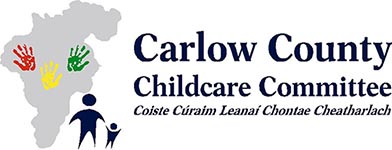SCHOOL AGE SERVICES

START UP
If you are thinking of setting up a School Age Service, Carlow CCC offers a range of supports, contact Carlow CCC on 059 9140244 and we will arrange a Start Up Meeting for you with one of our Development Officers who will walk you through all your options.
STATUTORY REGULATIONS
School Age Childcare Registration
On the 18th February 2019, the Child Care Act 1991 (Early Years Services) (Registration of School Age Services) Regulations 2018 came into effect. Services who cater for school age children (including childminders) must now register with Tusla, the Child and Family Agency. School-age childcare services have not, to date, been subject to registration, so this is a significant step forward in ensuring quality school-age childcare.
The School Age Childcare Team in Tusla is responsible for promoting the quality, safety and appropriate care of the children by assisting in the registration of services within the sector. Applications for registration can only be made online.
For further information please visit https://www.tusla.ie/services/family-community-support/school-age-services/
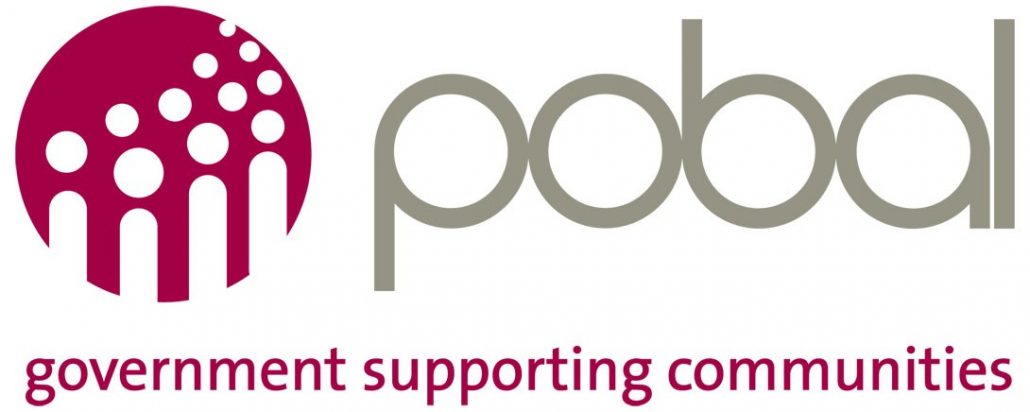
Pobal on behalf of the Department of Children and Youth Affairs (DCYA), conducts compliance visits with each participating School Age service who operates one or more of the National Childcare Programmes.
We advise services to maintain a compliance folder/file which can be made readily available to the visiting officer on arrival. This will ensure minimum disruption and speed up the compliance visit. We understand that some services file their records in other ways, but records must be available to enable the visiting officer to complete the compliance visit in a reasonable timescale. There should always be a staff member on site with access to the compliance folder/records in the event of an unannounced visit.
Click here to view : Pobal’s Service Provider Checklist
Carlow County Childcare Committee’ development officer are available to support Early Years services in relation to statutory regulations,
Contact 059 9140244.

GOVERNMENT FUNDED SCHEMES
The Department of Children and Youth Affairs (DCYA) operate a number of Childcare Schemes. These schemes provide free or reduced rate childcare to eligible children and their parents. The link below outlines the Rules for DCYA Funding Programmes.
Rules For DCYA Funding Programmes 2018-2019
Community Childcare Subvention (CCS): This programme provides childcare funding support targeting low income families in community childcare services.
Community Childcare Subvention Plus (CCSP): This programme provides childcare funding support targeting low income families in private childcare services and community childcare services.
Community Childcare Subvention Resettlement (CSSR): This programme provides childcare support to Programme Refugees to support their resettlement and integration into Irish society.
Community Childcare Subvention Resettlement (Transitional) (CSSR(T)): As part of the “Rebuilding Ireland – an Action Plan for Housing and Homelessness” the DCYA has provided access to free childcare for children of families experiencing homelessness.
Training and Employment Childcare (TEC) Programmes: These programmes provide childcare funding support for parents participating in eligible ETB/Solas vocational training courses, Community Employment (CE) programmes or returning to employment.
Click here: TEC Parent Information leaflet
Further information available at http://affordablechildcare.ie/
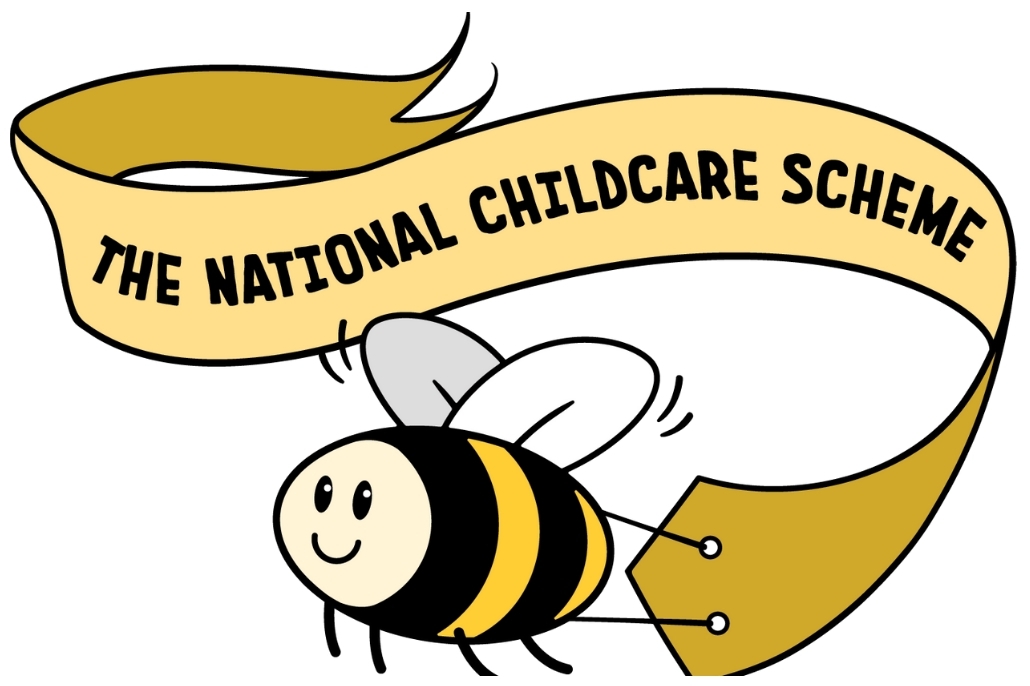
*** National Childcare Scheme***
On the 11th March 2019, Minister for Children and Youth Affairs, Dr Katherine Zappone, announced the launch of the National Childcare Scheme, the pathway to quality, accessible, affordable Early Learning and Care and School-Age Childcare in Ireland.
The Minister also announced a national Communications Campaign for the Scheme to raise awareness and help both parents and providers to prepare for the Scheme’s opening in October. The campaign includes:
- The launch of a new website- ncs.gov.ie
- The publication of a range of information resources, including general information leaflets, detailed booklets and Frequently Asked Questions. Further resources, such as online videos, ‘how to guides’ and a useful childcare subsidy calculator, will be added in the months ahead
- A dedicated helpline from April onwards for parents who have queries in relation to the new Scheme
- A nationwide training programme for providers, providing over 12,500 training places across 600 venues, with webinars and e-learning options also available (available to book via Eventbrite from today)
- A media campaign in May encouraging parents to get a MyGovID verified account so that they can access the Scheme in the fastest, most user-friendly way
- A major information campaign in September and October
An overview of the timeline of key events taking place between March and October 2019 will be available on the new website- www.ncs.gov.ie.
Under the National Childcare Scheme, families will be supported to meet the cost of quality childcare through a system of universal and income-related subsides. Additional funding provided under Budget 2019 ensures an even greater number of families will now benefit from the Scheme when it opens. The significant increase in the top net income threshold to €60,000 net income per year means that an estimated 7,500 additional children will benefit from the Scheme, with over 40,000 other children, already eligible, seeing increases to their subsidies.
The National Childcare Scheme is paving the way for Ireland’s childcare system to transform from one of the most expensive in the world into one of the very best.
PIP
What is PIP?
The Programmes Implementation Platform (PIP) is an online system which captures information on children under the schemes services provide.
Pobal continually update the Frequently asked question section of the PIP website to assist you in your preparations and keep you informed. It is important to check in regularly to keep your service up to date on any new announcement.
Contact your local CCC or the PIP Online Support Team (Monday to Friday) at onlinesupport@pobal.ie or phone 01 – 5117222. Please have your DCYA Reference number(s) ready.
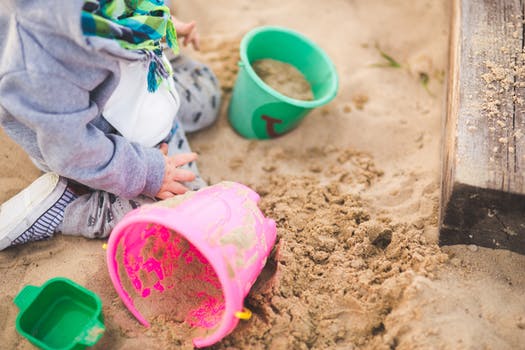
CHILD PROTECTION
The Child and Family Agency has a primary responsibility to promote the safety and well-being of children. An Garda Síochána also have statutory responsibilities for the safety and welfare of children.
Everyone must be alert to the possibility that children with whom they are in contact may be suffering from abuse or neglect. Tusla should always be informed when a person has reasonable grounds for concern that a child may have been, is being or is at risk of being abused or neglected.
The Children First Act 2015 was enacted on 19th November 2015 and commenced in full on December 11th 2017.
The Act places a number of statutory obligations on specific groups of professionals (including Early Years Services) and on particular organisations providing services to children.
Through the provisions of the Act, it is intended to:
- Raise awareness of child abuse and neglect
- Provide for mandatory reporting by key professionals
- Improve child safeguarding arrangements in organisations providing services to children
- Provide for cooperation and information-sharing between agencies when Tusla – Child and Family Agency, is undertaking child protection
The policy’s intent is that the legislation will operate side-by-side with the existing non-statutory obligations provided for in Children First: National Guidance for the Protection and Welfare of Children (2017)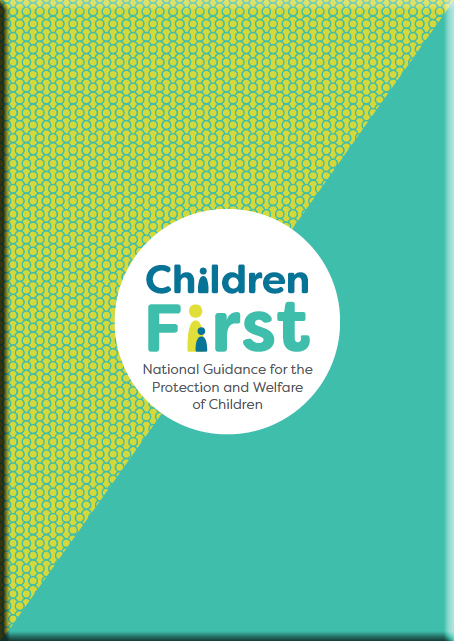
The Criminal Justice (Withholding of Information on Offences against Children and Vulnerable Persons) Act, 2012 and the National Vetting Bureau (Children and Vulnerable Persons) Act, 2012 are additional key pieces of complementary legislation designed to improve child safety and protection.
Ireland’s National Child Protection and Welfare Guidance Training
Early Years Services including staff, board members and volunteers should complete Tusla’s Children First e-learning programme.
Carlow CCC has responsibility for the delivery of Tusla’s Always Children First Child Protection training for the Early Years sector in Carlow. This training is valid for 3 years. For more information on any of our upcoming Child Protection Training, please see the Training section of our Website or call us on 059-9140244.
Suggested Links
5 Steps to Prepare for Mandatory Reporting
Developing-a-Child-Safeguarding-Statement-Draft-Jan-29-2018 (1)
Tusla’s guide for the reporting of child protection and welfare concerns

GOVERNANCE
The Governance Code is a resource to assist community, voluntary and charity (CVC) organisations develop their overall capacity in terms of how they run their organisation. It is a voluntary code provided free to all boards/committees/ executives of not-for-profit groups to encourage them to check themselves against best practice in the management of their affairs.
The Code has been put together by people with extensive experience in the CVC sector and it takes account of the different types of organisations which exist in the diverse world of volunteering across the country.
For more information please visit http://www.governancecode.ie/
FINANCIAL SUSTAINABILITY
Carlow CCC offers supports to services in relation to financial sustainability, please contact one of our Development Officers for more information on 059 9140244.
ONLINE ‘GDPR FOR MANAGEMENT’ TRAINING
The General Data Protection Regulations (GDPR) came into force on 25 May 2018 and all organisations are responsible for ensuring that they are meeting their obligations under the GDPR. The Department of Children and Youth Affairs (DCYA) is offering complimentary online General Data Protection Regulation Training to all childcare services to support them in meeting their Data Protection obligations.
This training is designed and delivered by iHasco and is available at: GDPR online training.
Disclaimer: DCYA hold no responsibility for the content of the course. It is at the discretion of each service whether they choose to complete the training. DCYA is not in a position to provide individual GDPR advice. Further details on GDPR and Data Protection can be found on the website of the Data Protection Commission: https://dataprotection.ie/docs/Home/4.htm
